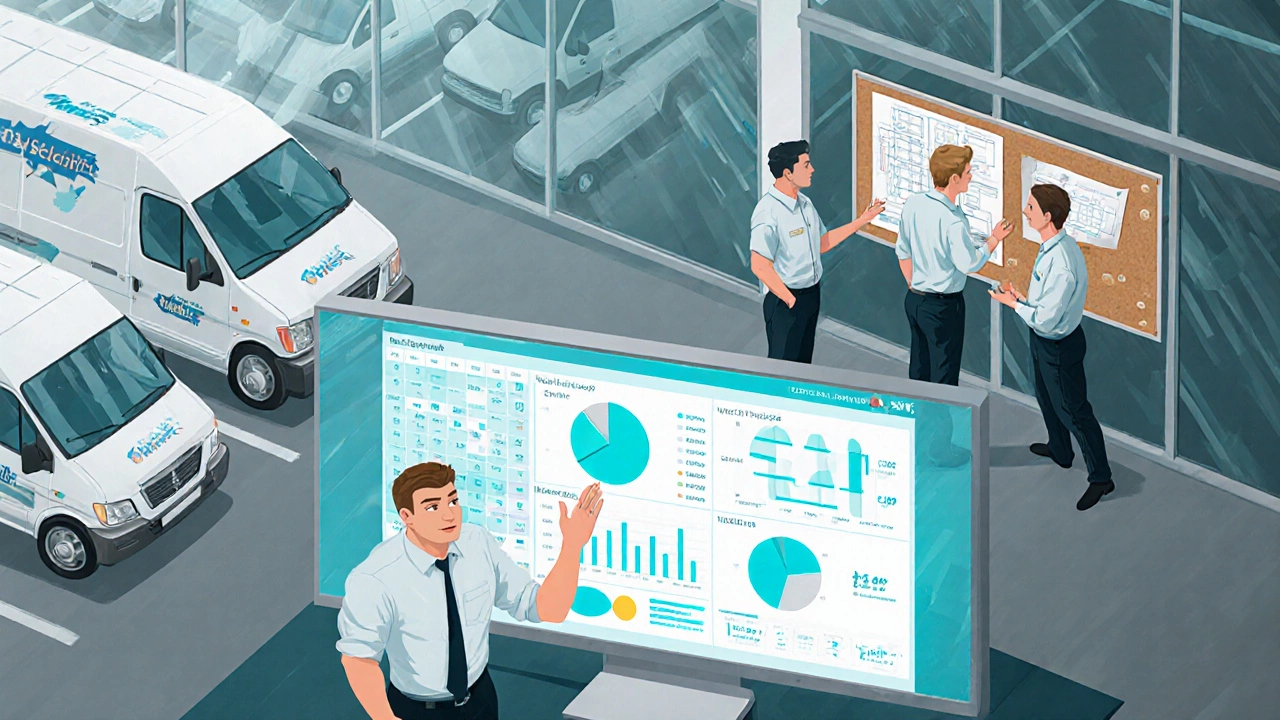Plumber Income Calculator
Estimated Annual Income
Your estimated gross annual income is AUD 0.
After taxes and typical business expenses, your net income would be approximately AUD 0.
To reach a million-dollar net worth, it would take approximately 0 years assuming consistent reinvestment.
Income Path Insights
This calculator shows how different career paths can impact your earning potential. Remember that becoming a millionaire requires more than just high income—it also depends on savings, investment returns, and disciplined financial habits.
Key Takeaways
- Million‑dollar earnings are possible, but they usually come from owning a plumbing business or mastering a high‑value niche.
- Employee plumbers can earn six‑figures, but reaching a million requires years of experience, overtime, and strategic location choices.
- Key levers are revenue scaling, profit margins, and disciplined wealth‑building habits.
- A solid apprenticeship, proper licensing, and continuous skill upgrades are non‑negotiable.
- Financial planning-retirement accounts, tax strategies, and insurance-makes the difference between a high salary and true millionaire status.
Understanding the Income Landscape
When you hear plumber millionaire, the first image that pops up is often a flashy truck and a toolbox full of gold. The reality is less glittery but far more achievable if you break down the numbers.
In Australia, the median annual salary for a fully qualified plumber sits around AUD 85,000. In high‑demand cities like Sydney or Melbourne, senior tradespeople can push AUD 120,000‑150,000 with overtime and on‑call rates. Those figures are solid, but becoming a millionaire usually means building a business that scales beyond a single wage‑earner’s cap.
Below we’ll map three concrete paths that can take you from a first‑day apprentice to a million‑dollar net worth, each with its own risk‑reward profile.
Path 1: Traditional Employment - Climbing the Salary Ladder
Most plumbers start as employees for a contractor or a large plumbing firm. This path offers a steady paycheck, benefits, and a clear career ladder.
Apprenticeship is the gateway. In Australia, a four‑year apprenticeship combines on‑the‑job training (about 75% of the week) with classroom study (25%). Completion earns you the required license to work unsupervised, typically after passing a state exam.
Once licensed, you can move to senior roles such as:
- Lead plumber - oversees crews, often adds a supervisory allowance (+10‑15%).
- Foreman - manages multiple jobs, may earn a flat bonus per project.
- Project manager - coordinates large commercial builds, salary can reach AUD 180,000.
Even at the top, a salaried plumber’s gross earnings usually cap around AUD 200,000. To cross the million‑dollar line, you’d need to save aggressively, invest wisely, and let compound interest work for decades-think 30‑40 years of disciplined saving.

Path 2: Running Your Own Plumbing Business
Owning a plumbing company is the fastest route to multi‑million turnover because you capture the margin that would otherwise go to an employer.
First, you become a Plumbing Contractor. You’ll need a business licence, public liability insurance (often AUD 2‑5k per year), and a solid cash flow plan.
Key revenue drivers for contractors:
- Job volume - secure a mix of residential, commercial, and maintenance contracts.
- Average ticket size - larger commercial projects can be AUD 20‑50k each.
- Profit margin - aim for 20‑30% after labor, materials, and overhead.
Example scenario: a small‑to‑medium contractor lands five commercial jobs a month at an average of AUD 30,000, plus 15 residential jobs at AUD 5,000 each. Monthly revenue ≈ AUD 225,000. At a 25% net margin, profit is AUD 56,250 per month, or AUD 675,000 per year. Add a few years of growth, and you cross the million mark in net profit within 2‑3 years.
Scaling tips:
- Invest in a reliable dispatch and invoicing software to reduce admin time.
- Hire skilled journeymen and offer profit‑sharing to keep turnover low.
- Expand services into Specialty Services like gas fitting, backflow testing, or hydraulic system maintenance, which command higher rates.
Path 3: Niche High‑Value Services - The Million‑Dollar Specialists
Some plumbers skip the broad‑service model and focus on a niche where demand outstrips supply.
Two lucrative niches in Australia:
- Commercial Plumbing - large‑scale office towers, hospitals, and universities need complex pipe networks, often under strict compliance timelines. Contracts can exceed AUD 1million per project.
- Residential Luxury Renovations - high‑end homeowners invest heavily in designer bathrooms, spa‑like showers, and smart water systems. Per‑room upgrades can fetch AUD 30,000‑50,000.
Specialists often charge a premium hourly rate (AUD 150‑200) and have lower overhead because they work with small, expert teams. A single commercial contract worth AUD 2million at a 15% margin yields AUD 300,000 profit-just two projects a year can put you over the millionaire threshold.
Building Wealth Beyond the Pipe
High earnings alone don’t guarantee a million‑dollar net worth. You need a financial strategy:
- Tax‑efficient structures - Operate through a company or trust to lower personal tax rates and protect assets.
- Retirement accounts - Maximise contributions to superannuation; the government matches up to AUD 27,500 per year.
- Invest surplus cash - Diversify into property (often a natural fit for tradespeople), index funds, or even equipment leasing.
- Insurance - Professional indemnity, income protection, and equipment coverage shield you from catastrophic loss.
When you treat your plumbing business like an asset, the profit you earn can be reinvested to create multiple income streams, accelerating the path to millionaire status.

Common Pitfalls & How to Avoid Them
Many plumbers think big profits will magically appear. Here are three traps and the fixes:
- Undercutting rates to win jobs - leads to razor‑thin margins. Use a pricing calculator that accounts for labor, materials, insurance, and desired profit.
- Skipping licensing updates - an expired licence can halt work and result in fines. Set calendar reminders for renewal every 2‑3 years.
- Ignoring cash flow - paying suppliers before customers settle invoices creates a gap. Implement a 30‑day payment policy and use a line of credit for short‑term needs.
Action Checklist - Your Roadmap to a Million‑Dollar Plumbing Career
- Complete a recognised Apprenticeship and obtain full licensing.
- Choose a career path: employee, contractor, or specialist.
- If contracting, register a business, acquire insurance, and set up bookkeeping software.
- Target high‑margin jobs: commercial contracts, luxury renovations, or niche services.
- Reinvest 30% of profits into retirement, property, or diversified investments.
- Review financial statements quarterly; adjust pricing or staffing as needed.
| Path | Typical Annual Gross | Net Profit Margin | Years to $1M Net Worth* |
|---|---|---|---|
| Employee Plumber | AUD 120,000‑150,000 | 10‑15% (after tax & living costs) | 30‑40 years (aggressive saving) |
| Plumbing Contractor | AUD 300,000‑800,000 | 20‑30% | 5‑8 years (scaled business) |
| Specialist (Commercial/Niche) | AUD 500,000‑1,500,000 | 15‑25% | 2‑4 years (high‑ticket contracts) |
*Assumes disciplined reinvestment of profits and no major setbacks.
Frequently Asked Questions
Can a plumber really earn a million dollars in Australia?
Yes, but it usually requires owning a plumbing business or focusing on high‑value niche contracts. Salaried plumbers can reach a million net worth only through long‑term saving and investing.
How long does the apprenticeship take?
A standard apprenticeship lasts four years, combining on‑the‑job training (about 75% of the week) with classroom study (25%). Completion grants the licence needed to work independently.
What are the biggest profit drivers for a plumbing contractor?
Job volume, average ticket size, and maintaining a 20‑30% net profit margin are key. Securing repeat commercial contracts and adding specialty services boost both volume and ticket size.
Do I need extra certifications for commercial plumbing?
Most states require a specific commercial plumbing licence or a higher class of plumbing certificate. It often involves additional coursework on large‑scale pipe systems and compliance standards.
How should I protect my earnings from tax?
Consider operating through a company or trust structure, maximize superannuation contributions, and keep detailed records for deductions such as vehicle, tools, and insurance.

